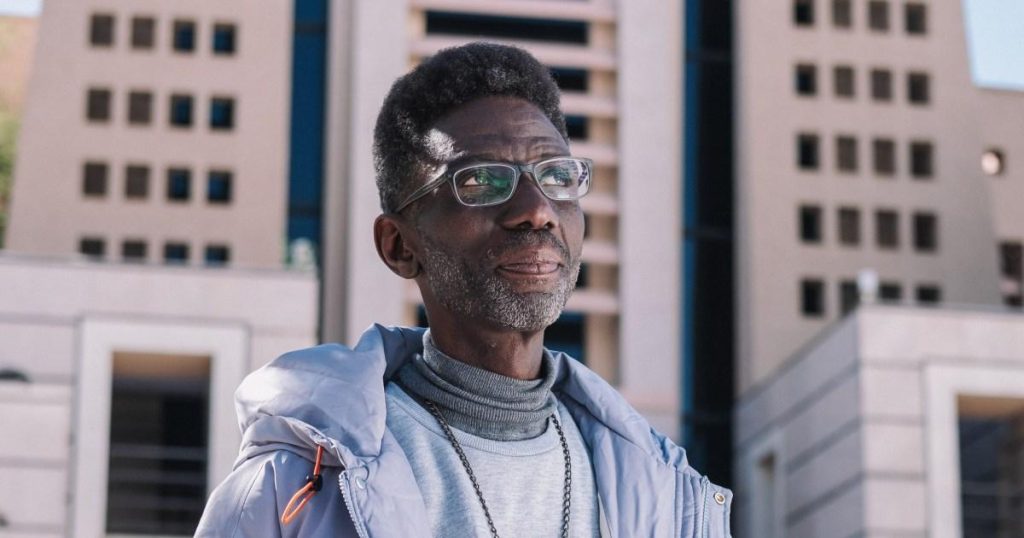Friedel Dausab, a 50-year-old Namibian, lived for half his life under the shadow of discriminatory sodomy laws that criminalized same-sex intimacy. These laws, remnants of British colonial rule, fostered a climate of fear and prejudice, pushing LGBTQ+ individuals into the shadows and deterring them from seeking essential healthcare services, including HIV prevention. Namibia’s high HIV prevalence, with over 11% of adults living with the virus, is partly attributed to these restrictive laws, which hindered condom distribution and access to support networks. Friedel himself was diagnosed with HIV at 25, a turning point that spurred him towards activism. He left his job as a flight attendant to dedicate his life to fighting for LGBTQ+ rights and HIV awareness.
The sodomy laws not only stigmatized same-sex relationships but also fueled violence against the LGBTQ+ community. Friedel witnessed the tragic consequences of these laws, including the brutal murders of gay men and transgender women. One particularly harrowing case involved a 20-year-old transgender woman whose mutilated body was discovered by schoolchildren. These acts of violence, coupled with derogatory rhetoric from some politicians who labeled the LGBTQ+ community as “satanic” and “demonic,” underscored the urgent need for legal reform.
After years of tireless advocacy, Friedel became the Executive Director of Outright Namibia, a leading LGBTQ+ rights organization. Frustrated by the lack of progress through parliamentary channels, he and his team decided to challenge the sodomy laws in court. Finding a suitable litigant proved challenging due to Namibia’s prohibition of class action lawsuits, but ultimately, Friedel himself stepped forward, becoming the face of the legal battle. This decision, though fraught with personal risk, resonated powerfully with the LGBTQ+ community and drew international attention to the issue.
Friedel’s legal challenge, launched in June 2022, argued that the sodomy laws were discriminatory and violated fundamental rights. His legal team, supported by the Diversity Alliance of LGBTQ+ organizations, meticulously crafted their strategy to avoid inflaming political tensions. They focused solely on the sodomy laws, steering clear of potentially divisive issues like same-sex marriage and adoption. As the case progressed, Amnesty International raised concerns about escalating hostility and discrimination against the LGBTQ+ community in Namibia.
After two years of legal battles and anxious anticipation, the High Court delivered its landmark ruling in June 2024. The court declared the sodomy laws unconstitutional, recognizing them as discriminatory and harmful to society. This momentous decision reverberated across Namibia and internationally, marking a significant victory for LGBTQ+ rights. For Friedel, the ruling was deeply personal, liberating him from the stigma of being considered a criminal in his own country. It also resonated with his devout Christian mother, who accompanied him to court, demonstrating a powerful message of love and acceptance within faith communities.
The High Court’s decision galvanized the LGBTQ+ community and their allies, empowering them to advocate for further legal reforms and improved access to healthcare services. Friedel emphasized the importance of securing funding for HIV prevention and ensuring the provision of condoms without stigma. He also highlighted the need to address the vulnerability of marginalized LGBTQ+ individuals, particularly those facing poverty and homelessness. Despite this victory, the fight for equality is far from over. A new marriage act prohibiting the recognition of same-sex unions was enacted, and the government appealed the High Court’s ruling on sodomy laws, forcing Friedel to take his case to the Supreme Court. While challenges remain, Friedel’s unwavering commitment and the support of organizations like the Kaleidoscope Trust and the Human Dignity Trust continue to propel the movement forward. His lifetime of activism serves as an inspiration, reminding us that the pursuit of justice and equality requires courage, perseverance, and a steadfast belief in the power of change.











